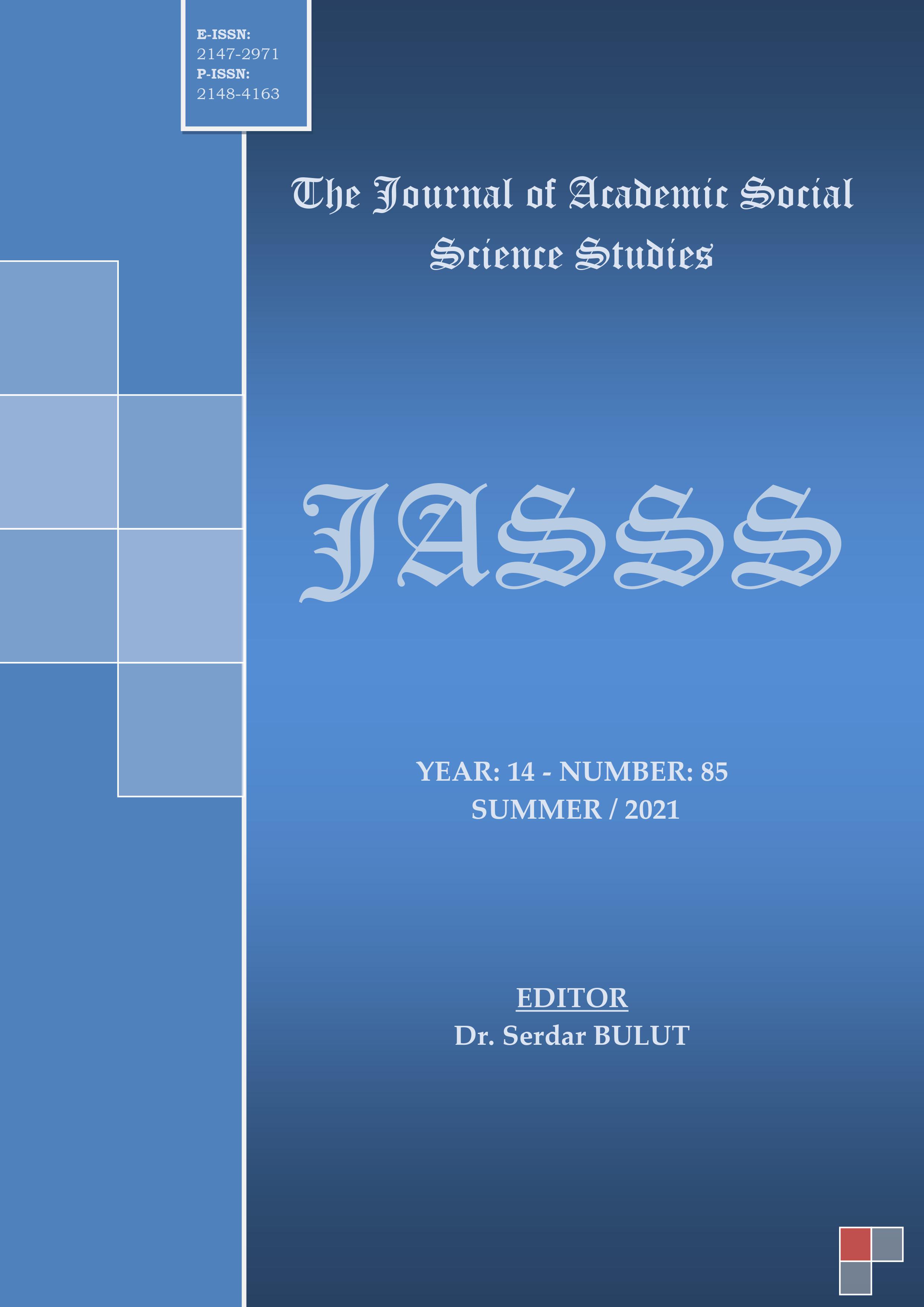Author :
Abstract
Ülkemizdeki gayrimenkul sektöründe 1950'li yıllardan itibaren büyük şehirlere doğru yoğun bir göç meydana geldiği görülmektedir. Bu durumun sonucu olarak kentsel nüfusun önemli ölçüde artış eğiliminde olduğu gözlenmektedir. Kentsel nüfusun bu denli yüksek bir oranda artış eğiliminin doğal bir sonucu olarak, konut edinmeye yönelik ihtiyaçlarda pozitif yönde bir ivme kazanmıştır. Tüm bu gelişmelerin sonucunda ortaya çıkan kentleşme ile birlikte konut talep piyasasında da önemli gelişmeler meydana gelmiştir. Piyasanın konut edinmeye yönelik talebi çok sayıda müteahhit ve inşaatın gündeme gelmesine sebep olmuş ve yine bunun da uzantısı olarak vergiye yönelik düzenlemeler gündeme gelmiştir. Aynı zamanda inşaat sektörünün, GSYH içindeki yaklaşık % 8 direkt payı ve bağlı sektörlere olan %30'lar civarındaki ekonomik etkileri de dikkate alındığında konut sektörünün ülkemizdeki önemli sektörlerimizden biri olduğunu da ortaya koyacaktır.
Milli ekonomimizde ciddi bir öneme sahip olan konut sektörünün kendisine has bazı özellikleri bulunmaktadır. Benzer biçimde inşaat muhasebesine yönelikte bazı uygulama sorunlarına da sahiptir. İnşaat sektöründe KDV uygulamaları bu konulardan sadece birisi olduğu görülmektedir. Çalışmamızda inşaat sektörüne ait kısa bir genel durumunun yanı sıra KDV sorunlarına yer verilmiştir. Çalışmada ülkemiz inşaat sektöründe vergi ile ilgili geçmişte yaşanan tecrübeler doğrultusunda, vergi otoritesinin daha basit, kolaylıkla anlaşılabilen ve uygulanabilen denetim mekanizmalarına yardımcı ve daha etkin bir sistemin gerekliliği vurgulanmaktadır.
Keywords
Abstract
In the real estate sector in our country, there has been an intense migration towards big cities since the 1950s. As a result of this situation, it is observed that the urban population has a significant increase trend. As a natural consequence of the increasing trend of the urban population at such a high rate, the need for housing has also gained positive momentum. Important developments have occurred in the housing demand market with the urbanization that emerged as a result of all these developments. The market's demand for housing has brought a large number of contractors and construction to the agenda. And again, as an extension of this, tax regulations have been brought to the agenda. At the same time, considering the approximately 8% direct share of the construction industry in GDP and the economic effects of its affiliated sectors around 30%, it will reveal that the housing sector is one of our important sectors in our country.
The housing sector which has a significant importance in our national economy has some unique features. Similarly, it has some implementation problems for construction accounting. It is seen that VAT implementations in construction industry accounting are just one of these issues. In our study, besides a brief general situation of the construction sector, VAT problems are studied. The study emphasizes the necessity of a more efficient and effective system of auditing mechanisms of the tax authority, in line with the past experiences regarding tax in the construction sector of our country.
Keywords
- ASMMMO, (2020). İnşaatlarda Vergi ve Muhasebe Uygulamaları, http://www.asmo.org.tr/tablolar/genel/uygulama_1.pdf, Erişim Tarihi: 12.03.2020.
- Bazı Bakanlar Kurulu Kararları ile 31/10/2018 Tarihli ve 287 Sayılı Cumhurbaşkanı Kararının Eki Kararlarda Değişiklik Yapılmasına Dair 535 sayılı Cumhurbaşkanı Kararı.
- Bekçi, İ. (2011). Faaliyet Tabanlı Maliyetleme Yönteminin İnşaat Taahhüt İşletmelerinde Uygulanması, Uludağ Üniversitesi İİBF Dergisi, 2/2011, ss:119-136.
- İVDB İstanbul Vergi Dairesi Başkanlığı, Konut Teslimlerinde Uygulanacak KDV Oranları, https://ivdb.gov.tr/sites/all/olusturulanDosyalar/konut_isyeri_kdv_orani.pdf, Erişim Tarihi: 26.03.2020.
- Kurban, D. A. (2020). Özel İnşaatlarda Vergi ve Muhasebe Uygulamaları, Seminer Sunum Notları, http://www.muhasebetr.com/muhasebe/043/, Erişim Tarihi: 22.03.2020.
- Pamuk, İ. (2016). Türk Vergi Hukukunda İnşaat Çeşitleri: Özel İnşaatlar ile Yıllara Yaygın İnşaatlar, https://consensusymm.com/turk-vergi-hukukunda-insaat/, Erişim Tarihi: 22.03.2020.
- Sayın, K. Ş. (2017). TMS 11 İnşaat Sözleşmeleri Standardının Türk Vergi Sistemi Açısından Değerlendirilmesi ve Uygulama Örneği, Akademik Tarih ve Düşünce Dergisi, c. IV, s. XIII, Aralık, ss:63-95.
- Şen, İ. K. (2012). TMS11 - İnşaat Sözleşmeleri Standardına Göre Tamamlanma Yüzdesi Yöntemi, Çukurova Üniversitesi İİBF Dergisi, c.16,s.12, ss:83-94.
- Şengür, E. D. (2012), İnşaat Sözleşmeleri Muhasebesi ve Finansal Performansın Ölçülmesinde Maliyeti Kurtarma Yöntemi, Mali Çözüm, Eylül-Ekim 2012, ss:123-153.
- Öcal, M. E. (2002). Yapı Üretiminde Maliyet Muhasebesi ve Vergilendirme Uygulamalarının Değerlendirilmesi, Çukurova Üniversitesi, İİBF Dergisi, c.17. s.1-2, ss: 43-58.
- Öngören, G. (2017). İnşaat Hukuku, http://www.ongoren.av.tr/wp-content/uploads/2017/02/insaat- hukuku-02-02-2017.pdf, Erişim Tarihi: 22.03.2020.
- Yereli A. N. (2011). İnşaat Sözleşmelerine İlişkin Türkiye Muhasebe Standardı (TMS 11) Çerçevesinde Yıllara Yaygın İnşaat Taahhüt İşlerinin Muhasebeleştirilme, Dokuz Eylül Üniversitesi, Sosyal Bilimler Enstitüsü Dergisi, c.13, s.3, ss:113-135.
- 2016/9153 sayılı Bakanlar Kurulu Kararı.
- 2007/13033 sayılı Bakanlar Kurulu Kararı.
- https://www.hakedis.org/insaat-islerinde-kdv-tevkifat-orani-degisti/, Erişim Tarihi: 12.03.2020.
- http://www.asmmmo.org.tr/userfiles/others/files/InsaatMuhasebeciSunum.pdf, Erişim Tarihi: 10.03.2020.





